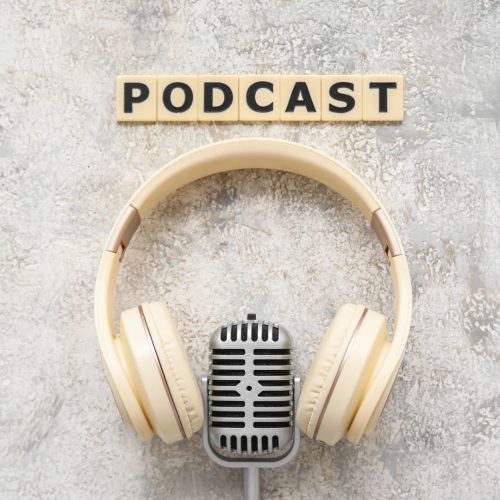Check Out Let’s Blow This Up On Your Favorite Platform
Apple Podcasts | Spotify | Amazon Music | iHeartRadio | Podchaser | YouTube
 Why Personal Podcasting Best Practices Matter More Than Generic Advice
Why Personal Podcasting Best Practices Matter More Than Generic Advice
There’s no shortage of podcasting advice out there. Scroll social media for five minutes, and you’ll probably see three “must-do” tips from creators you’ve never heard of. But here’s the thing: what works for them won’t always work for you.
Establishing personal podcasting best practices is essential for creators who want to build a show that’s consistent, authentic, and ready to stand the test of time. Rather than relying on one-size-fits-all tips, successful podcasters develop systems that reflect their unique workflows, schedules, and goals. This includes everything from how they prepare for episodes to how they communicate with co-hosts and collaborators. Clear expectations, repeatable processes, and consistency in messaging can help you streamline your podcasting routine and reduce friction behind the scenes.
Instead of applying every strategy you stumble across, it’s more effective to focus on what aligns with your goals, creative energy, and workflow. Podcasting isn’t about checking boxes. It’s about showing up in a way that’s consistent and sustainable.
Without losing your sanity in the process.
Create Systems That Serve You, Not the Algorithm
Custom podcasting habits support sustainable growth. Creators who design frameworks around their own strengths are better equipped to stick with the long game and avoid burnout. Whether you’re a solo host or part of a team, defining what works for you – and regularly reassessing those practices – makes it easier to maintain momentum.
Personal best practices ensure your content stays aligned with your purpose, while also giving you room to grow and adapt as your show evolves.
There’s no gold medal for following every piece of advice you see online.
Instead, take the time to evaluate what strategies actually make sense for your show. It’s important to filter recommendations through your own lens. Not every tactic is going to be worth your time and there’s absolutely nothing wrong with that.
Your podcasting framework should:
-
Support your energy levels and capacity
-
Reflect your communication style with co-hosts or guests
-
Be flexible enough to adapt as your life or schedule changes
-
Create consistency without adding unnecessary stress
If you’re working with others, open communication is key. When you and your co-host or collaborators are on the same page about expectations, it’s easier to stay in sync and avoid burnout.
YOU MAY ALSO LIKE: How to Create a Functional, Badass In-Home Podcast Studio
Consistency Isn’t Just About Publishing
Everyone talks about consistent episode drops and that, no matter what, you need to “just keep going!”
But truly building a podcast platform that works for you goes much deeper than that.
Real consistency means:
-
Keeping your audience informed if there’s a break in your release schedule
-
Staying aligned with your co-host(s) and other team members on direction and responsibilities
-
Using clear, repeatable processes for prep, recording, and promotion
-
Sticking to a voice and message that your audience comes to trust
When your audience knows what to expect, you earn credibility. And when your team understands how things flow, production gets smoother. Consistency becomes a win for everyone involved.
Adopt, Adjust, Repeat
Your best practices don’t need to be set in stone.
They can (and should) evolve as your podcast does. What worked on Episode 5 might not work by time you reach Episode 75. That’s normal. Growth means checking in with yourself and asking what’s still serving you and what needs to change.
Don’t chase someone else’s version of a successful podcast. Define what success looks like for you. Then build habits that help you get there.
In Closing…
Podcasting is a long game. If you want to keep showing up without burning out, it starts with creating a system that’s tailored to your needs. Not someone else’s.
Figure out what helps you stay consistent, energized, and aligned with your goals. Then build your process around that.
Because at the end of the day, your podcast doesn’t need to look like everyone else’s.
It just needs to work for you.





